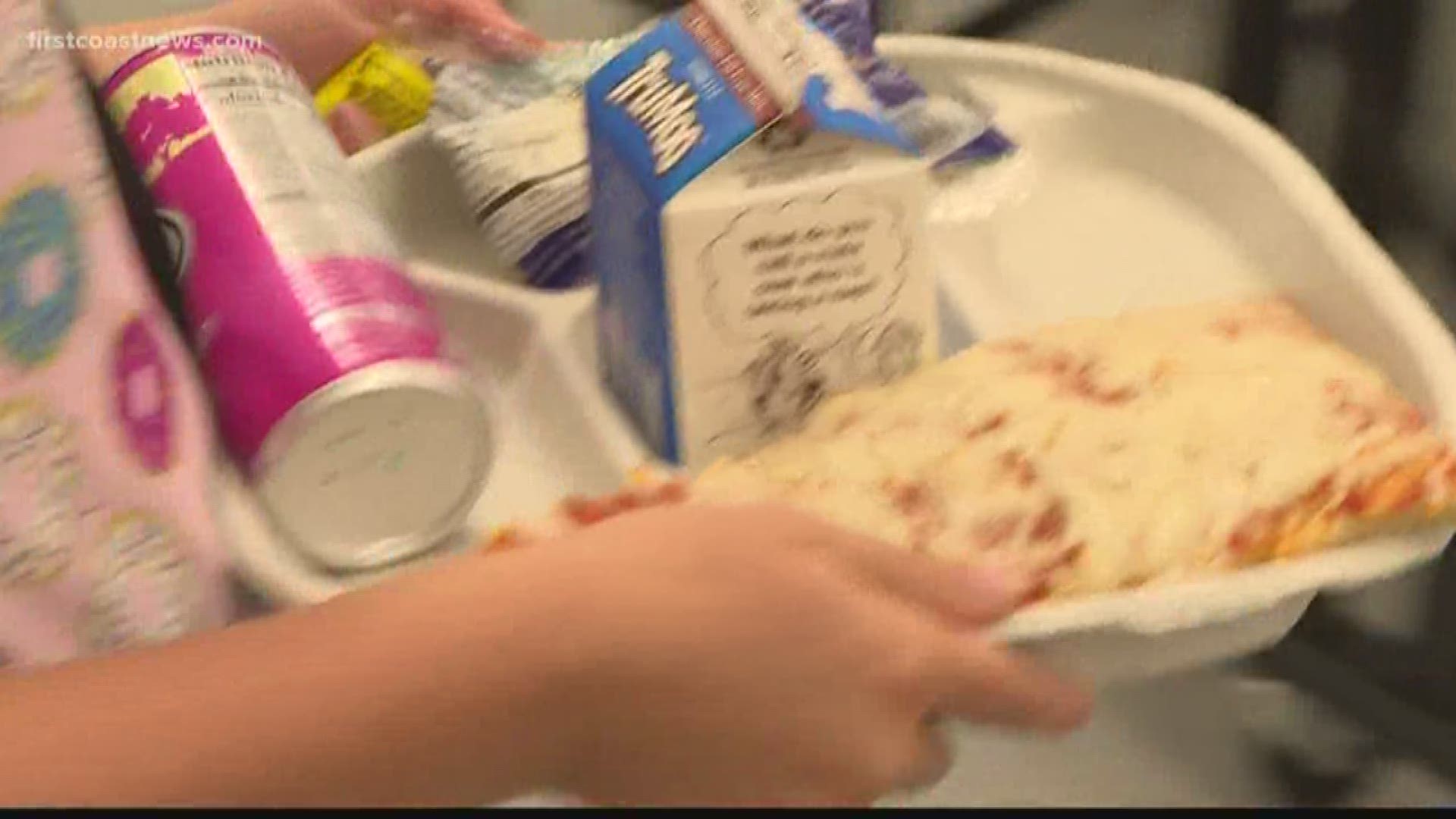ST. JOHNS COUNTY, Fla. -- A wave of environmental change is happening in school lunchrooms across Florida.
"I've heard from a lot of teachers. They hate seeing the amount of waste generated in school cafeterias," Maia McGuire said. She is a plastics researcher with Florida Sea Grant. She studies the how plastic waste impacts the environment.
About a year ago, she met with teachers and students. McGuire said every school district in Florida was using Styrofoam lunch trays.
"I introduced the concept to them," she said. "They started doing their own research. They got all concerned and came up with the idea of coming up with an alternative to Styrofoam trays in the cafeteria."
One thing led to another and she says the school districts for Flagler, Nassau, and Indian River counties switched over the paper lunch trays. And now St. Johns Schools is testing out the paper trays at Otis Mason Elementary.
The trays are made out of recycled paper, so when they're thrown away, they'll decompose. But how much more do they cost? Depending on your supplier, they'll cost anywhere from one to four pennies more per tray than the Styrofoam trays.
"Which adds up over the amount of meals we serve every year," Sean Prevatt said. He is the Director of Food Services and Nutrition for St. Johns County Schools.
And there are mixed reviews from the people actually using the paper trays.
Students told First Coast News that the new trays have more room than the old ones. Some students prefer the Styrofoam trays. Almost all the students we talked with said the trays tend to leak a little.
The reviews were new for the district's food services director.
Prevatt said, "It's interesting to hear them say it leaks a little bit, which shows it's compostable. So it's a fine line between the benefit and the problems that may come out of it."
He also said St. Johns County is probably going to implement the paper trays at all the elementary and middle schools. He explained the high schools are already using compostable trays. It's a decision that could cut down on the amount of plastic garbage.
Prevatt said, "You have to do the right thing. So if it costs a little bit more, we'll just make it work."
It's a bit of applied science ... from the laboratory to the lunchroom.

